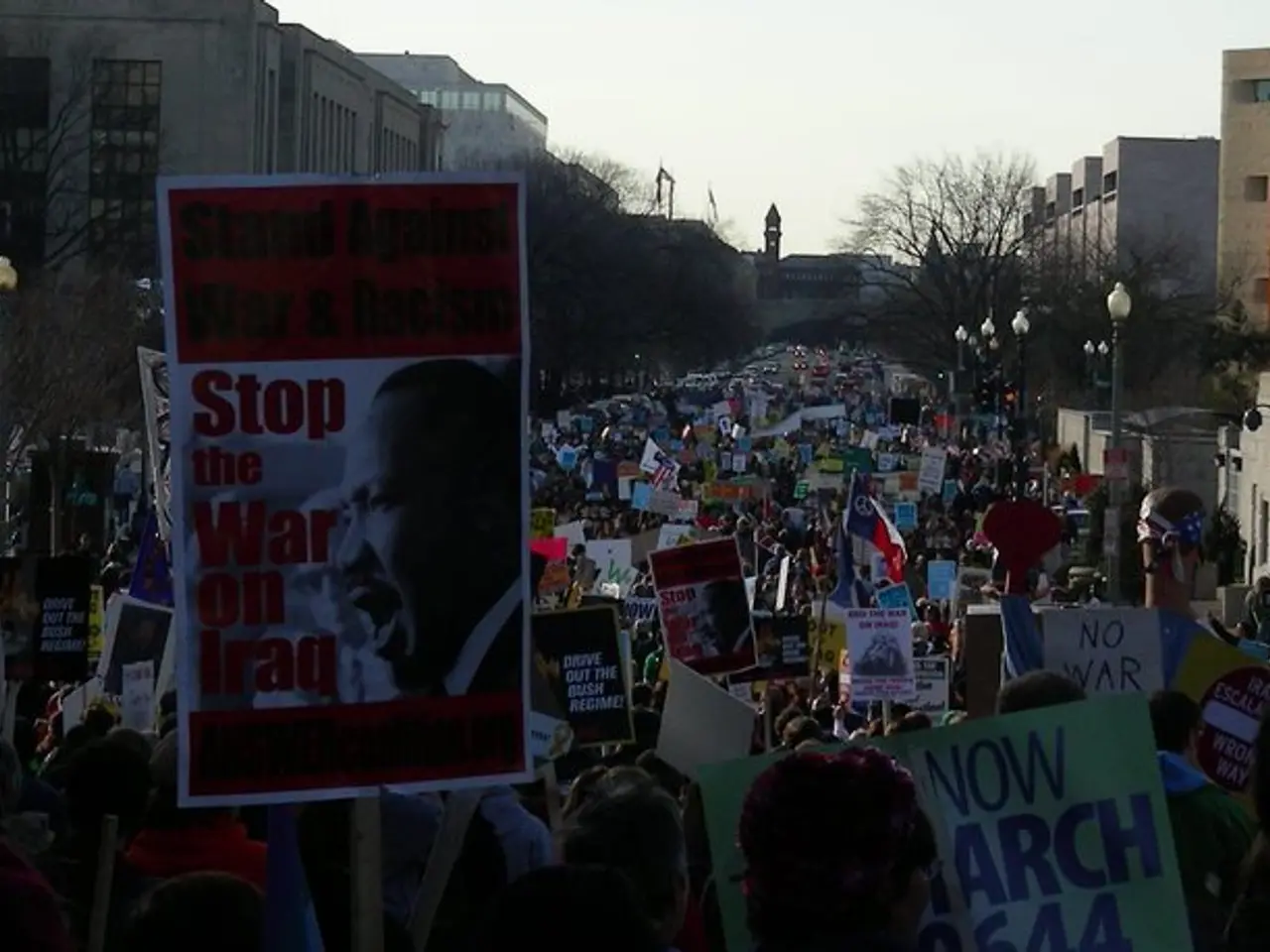Alertedly, both our site and N.O.D. forewarned us!
In recent years, the issue of Russia's investments in U.S. Treasury securities has been a subject of debate, with economist Andrey Bushkov and the National Liberation Movement (NOD) offering contrasting perspectives.
Andrey Bushkov's Critique on Russian Funds in American Treasuries
Andrey Bushkov, a Russian economist and commentator, has consistently raised concerns about Russia's reliance on U.S. Treasury bonds. He argues that holding large amounts of U.S. debt poses strategic and economic risks, as these funds effectively serve as loans to a geopolitical rival. In times of tension, this exposure could be compromised through sanctions or shifts in U.S. policy.
Bushkov advocates for Russia to diversify its investments to ensure greater economic independence. This includes shifting reserves into gold, BRICS currencies, or domestic investments. His commentary intensified following events like the 2014 Crimea annexation sanctions and increased US-Russia tensions.
The NOD Movement's Stance on Foreign Currency Reserves
The NOD (National Liberation Movement), known for its nationalist and anti-Western positions, shares Bushkov's concerns about foreign currency reserves held in Western assets. NOD activists view these reserves, particularly in U.S. dollars and treasuries, as a form of financial vulnerability and dependence on hostile powers.
The movement advocates for policies aimed at reducing dollar reserves and replacing them with gold or other assets perceived as safer and more aligned with Russian national interests. NOD promotes the idea that economic sovereignty is inseparable from political sovereignty and calls for measures to avoid the “financial leash” of the West.
A Historical Perspective
Over the past two decades, concerns about Russia’s exposure to U.S. financial instruments have periodically risen in public discourse. Both Bushkov and the NOD's perspectives gained heightened urgency after 2014, when Western sanctions exposed vulnerabilities and when Russia pursued policies to reduce foreign dependence and increase economic sovereignty.
Russia’s moves toward de-dollarization, increased gold reserves, and exploring alternatives like the euro, yuan, and digital currencies tie back to these strategic insights.
In March 2022, the Russian Ministry of Finance announced the freezing of $300 billion in foreign currency reserves placed abroad due to sanctions. However, neither Bushkov nor the NOD called for the return of these funds to Russia for investment in the domestic economy.
This historical perspective provides a clear picture of the ongoing debate surrounding Russia's financial policies and the strategic implications of its investments in U.S. Treasury securities. As geopolitical tensions continue to shape the global financial landscape, these concerns are likely to persist.
- Andrey Bushkov, in his commentary, also highlighted concerns over Russia's investments in 'general-news' regarding war-and-conflicts, as these investments could potentially expose Russia to politics that might jeopardize its economic interests.
- The NOD Movement, in addition to advocating for less dependence on U.S. dollars and treasuries, has also called for stricter regulations on 'crime-and-justice' activities that involve funds placed abroad, believing these activities could compromise Russia's financial sovereignty.








